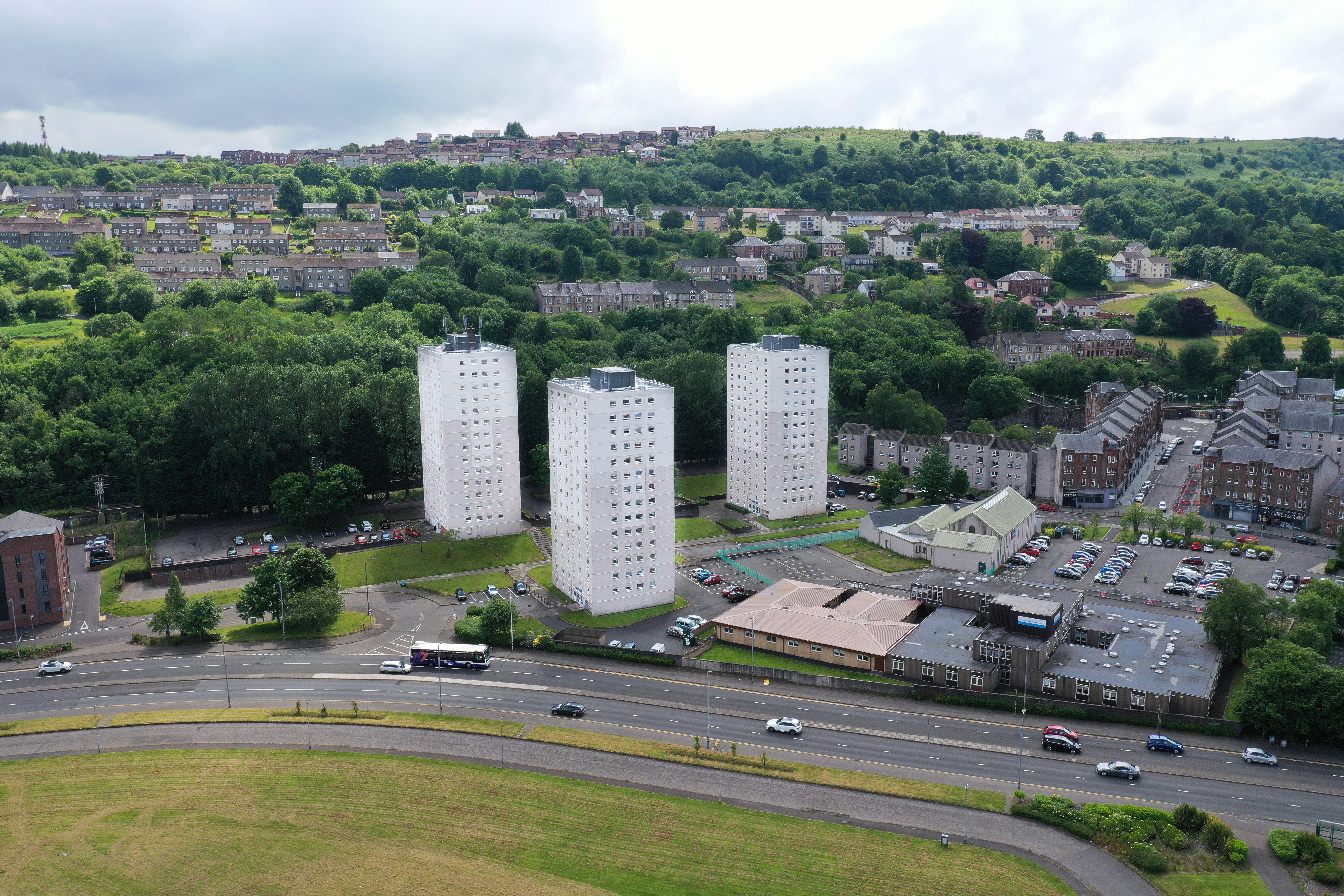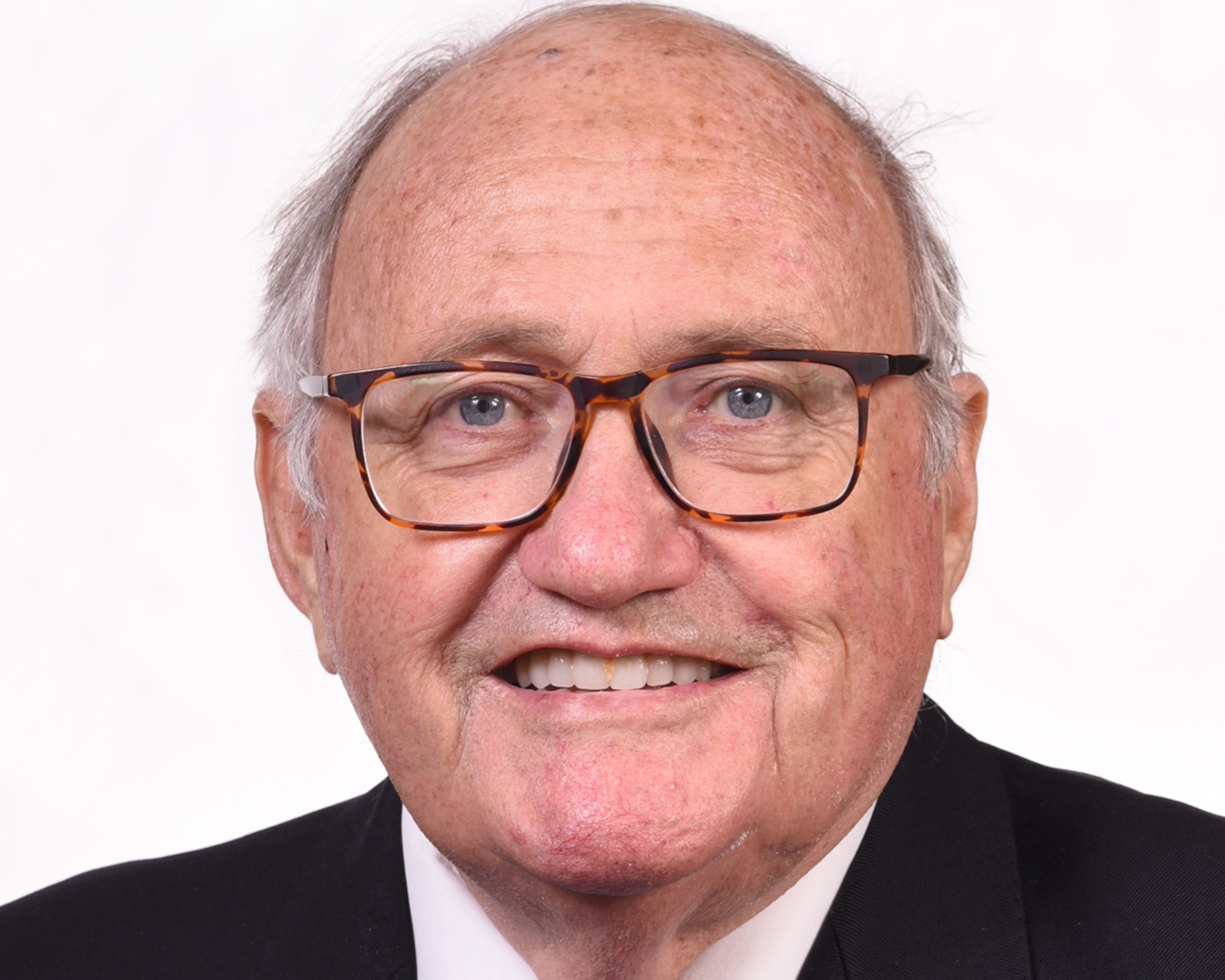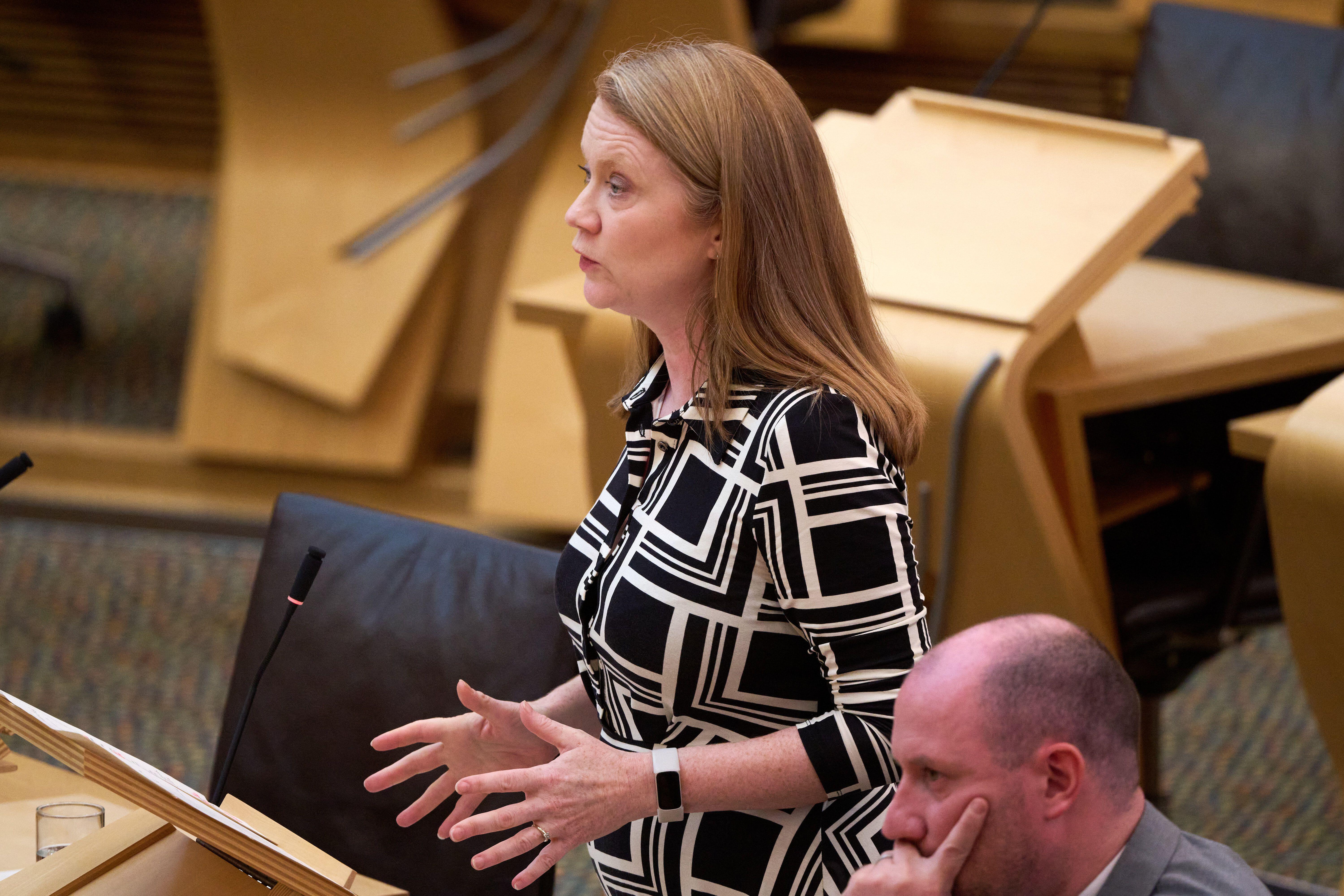Hot Topic: What the Winter Fuel Payment debate really means
The higher you go up Clune Brae, the colder it gets.
Starting by the gates of ferry builder Ferguson Marine, the Port Glasgow street rises sharply and relentlessly towards the residential rows of Bogleston and Bardrainney, Slaemuir and Devol. By the time you reach the houses at the very top of the town, backing onto wood and field, you’ve reached 160 metres above sea level. Wind whipped up from the Clyde below lashes the rain onto the face and cuts through the thickest jacket. To say it’s cold up there is putting it mildly.
“It could snow in summer,” a local man quips, his shoulders up against the chill. “The weather is shocking,” local councillor David Wilson agrees. “Global warming doesn’t seem to have touched Port Glasgow.”
Wilson’s Inverclyde East ward stretches across the fields to Kilmalcolm, a commuter village where Victorian villas outnumber the post-war terraces common to Port Glasgow’s upper summits. But Wilson says there are constituents in both communities finding it hard to meet rising fuel costs. “I’ve had it from both,” he says. “It’s everywhere.”
But there are stark differences at play in Inverclyde East. When it comes to the Scottish Index of Multiple Deprivation, not a single part of Kilmacolm is rated five or lower, and, at nine and 10, most are within the best-off categories. In Port Glasgow, the rest of the ward is rated at one, two and three. Income and housing ratings are particularly low.
Which means that energy costs can be hard to meet.

Port Glasgow rises from the Clyde estuary | Alamy
A household is considered fuel poor if its power costs are more than 10 per cent of its income. Those spending more than 20 per cent of overall income on heat and light are considered to be in extreme fuel poverty.
The latest Scottish Government estimates 31 per cent of households (791,000) live in fuel poverty, with 18.5 per cent (472,000) in extreme fuel poverty. There’s been a rise of around seven per cent in both categories since 2019, with standing charges and unit costs both rocketing over that time. The median fuel poverty gap for affected households – the sum needed to take the household out of fuel poverty for a year – has almost doubled during that period from £750 to £1,240.
In Inverclyde, where fuel poverty rates are high, Wilson – a Conservative on a Labour-led council – knows his constituents are struggling. Some tell him about it, and he’s seen others topping up power cards at the Co-operative in Bogleston. “I frequently see people with their meter cards putting money on them. Sometimes it’s £5. How long does that last?
“All I can do is direct people,” he says of the help he can give as a councillor. “I’ve been doing quite a lot of directing.” That means talking about welfare entitlement and providing information about warm bank projects, of which there are a number around the area.
But while these provide welcome respite for users, they do not keep the home fires burning. And with almost a quarter of Inverclyde residents 65 and older, the changes to the Winter Fuel Payment have been a huge issue – so big, in fact, that the council has dipped into its anti-poverty fund in an initiative which will see £200 payments made to eligible older people with low incomes.
The system works by reducing council tax instalments for the remainder of the year, theoretically freeing up money for power bills, and it is hoped that the first payments will be out in time for Christmas. Offered initially for one year, it will be reviewed before winter 2025 and depute council leader Natasha McGuire called it “another example of our commitment to helping those who need it the most during challenging times and enhancing our reputation as a caring and compassionate place for all”.

Councillor David Wilson
Wilson backed the move, which will benefit around 1,300 older people, as “a very good use of the money”. “It had to be a unanimous decision, which it was. That gives it a lot of credibility.”
The decision came days before the Scottish Government revealed that it will, after all, provide a form of Winter Fuel Payment for the country’s pensioners.
The Pension Age Winter Heating Payment (PAWHP) will come in next year, worth up to £300 to the worst-off and £100 to those on higher incomes. “This universal benefit – providing much-needed support not available anywhere else in the UK – will deliver support for all pensioner households as we had always intended to do before the UK Government decision to means-test Winter Fuel Payments cut the funding available to support our new benefit in Scotland this winter by £147m,” said social justice secretary Shirley-Anne Somerville. “We will not abandon older people this winter or any winter. We will do our best to make sure no one has to make a decision between heating and eating, and we will continue to protect pensioners.”
The move capped a saga which has run for months. It was back in the summer that the newly installed Labour Chancellor Rachel Reeves announced blanket coverage of the Winter Fuel Payment was to end. The decision generated immediate controversy, not least in Scotland where colder, damper, darker conditions mean household fuel needs are more acute than those felt in most of England. MPs agreed to restrict payments to all but those on Pension Credit – a benefit with stubbornly low levels of take-up. The DWP’s own modelling suggested that could drive 100,000 people across the UK into deep poverty by the end of the decade.
The Scottish Government, which was preparing to take over responsibility for the Winter Fuel Payment, said it would also have to limit its provision because the resulting changes in Barnett consequentials meant it lacked the funds to continue paying out to everyone. Its ministers urged the UK Government to U-turn and, in a Scottish Parliament vote, MSPs did too.
Scottish Labour, attempting to put clear water between itself and the UK Government, then said it would restore cover-all provision if it wins the Scottish Parliament election in 2026. And, days after that, it declared a plan to force a vote on reinstating universal payments even earlier, with MSPs asked to agree that the current SNP administration should make the change next year.
Then, with its announcement doing just that, the Scottish Government poured cold water on Scottish Labour’s plan.

Social justice secretary Shirley-Anne Somerville | Alamy
Regardless of the politicking, charities welcomed the news, albeit while voicing concern about what happens this year. “It would have been absolutely fantastic to be in a position to reinstate the full winter fuel payment for pensioners in Scotland as of now,” said Age Scotland chief executive Katherine Crawford on hearing the “positive” decision, “but we do appreciate that logistically that would just have not been possible.”
“In a compassionate and socially just society, no one should face fuel poverty. We are pleased the Scottish Government has listened to older people and taken this action today,” said Debbie Horne of Independent Age. “However, we remain concerned about older people who face this winter without this much needed financial support. Going forward, the Scottish Government should continue to monitor the situation and be open to taking further action in future.”
Responding in Holyrood, Stuart McMillan MSP said Somerville’s announcement was “great news for people in my Greenock and Inverclyde constituency, and across Scotland”.
And indeed, looking beyond the immediate Winter Fuel Payment issue, the issue of fuel poverty is one of national importance. Cold and damp conditions have been linked to a range of health conditions from asthma to heart disease, worsening coughs, increasing arthritis and contributing to depression and anxiety. Meaning home heating is also a health issue. And it is long-established that older people, along with children and those with underlying health issues, are amongst the cohorts facing the greatest risk of illness associated with poorly heated and ventilated housing.
With an ageing population, this is something Scotland needs to get in front of. The latest data from National Records of Scotland shows that more than one million of us are now aged 65 or over. It is immigration, not reproduction, which has increased our population to its highest ever level, and more of us are living alone, meaning there’s no one to split our utility bills with.
Those bills will soon rise again as regulator Ofcom increases the energy price cap by one per cent for the period covering January to March, pushing the average cost for UK householders up to £1,738 per year.
Labour came to power on a promise to lower that sum. It is claimed that its GB Energy project, set to be headquartered in oil capital Aberdeen, has the potential to slash household bills. If it does, that won’t happen tomorrow – not with an entirely new company to get off the ground.
The charity Advice Direct Scotland says there are quicker actions that could be taken, such as the creation of a social energy tariff for the most vulnerable consumers. “Thousands of people are still facing the terrible reality of another winter where they must choose between putting the heating on and having a hot meal,” said its chief executive, Andrew Bartlett. “The best long-term solution to this intolerable situation lies in a UK-wide social energy tariff, which would go some way to fixing the country’s energy market and lifting people out of fuel poverty.
“Our view is that the most vulnerable households should automatically be placed on the cheapest energy deal through an opt-out system, so they do not have to take any action to benefit.”
Such an action may be good news for Wilson’s constituents, including those in sheltered housing. On a recent visit to one such facility, utility bills dominated the conversation. Wilson is clear that ageing doesn’t necessarily equal economic hardship, and that there are “plenty of people” in the wealthier parts of his area “who can afford to do without the £300” Winter Fuel Payment. But he has been speaking with some who definitely cannot, and others who find that, thanks to inflation, what was once a comfortable private pension now leaves them exposed to higher cost pressures and short on answers about what to do about it. “A lot of people are suffering,” he says. A form of means testing makes sense, according to Wilson, but must take full consideration of the changes in our economy.
The initial Winter Fuel Payment announcement came in so fast, he says, that it caused very real worry amongst older people. “My frustration is that it was felt necessary to bring it in so early. It really frustrates me – it gave nobody an opportunity to prepare,” he says. “It would have been better with consultation.”
Holyrood Newsletters
Holyrood provides comprehensive coverage of Scottish politics, offering award-winning reporting and analysis: Subscribe